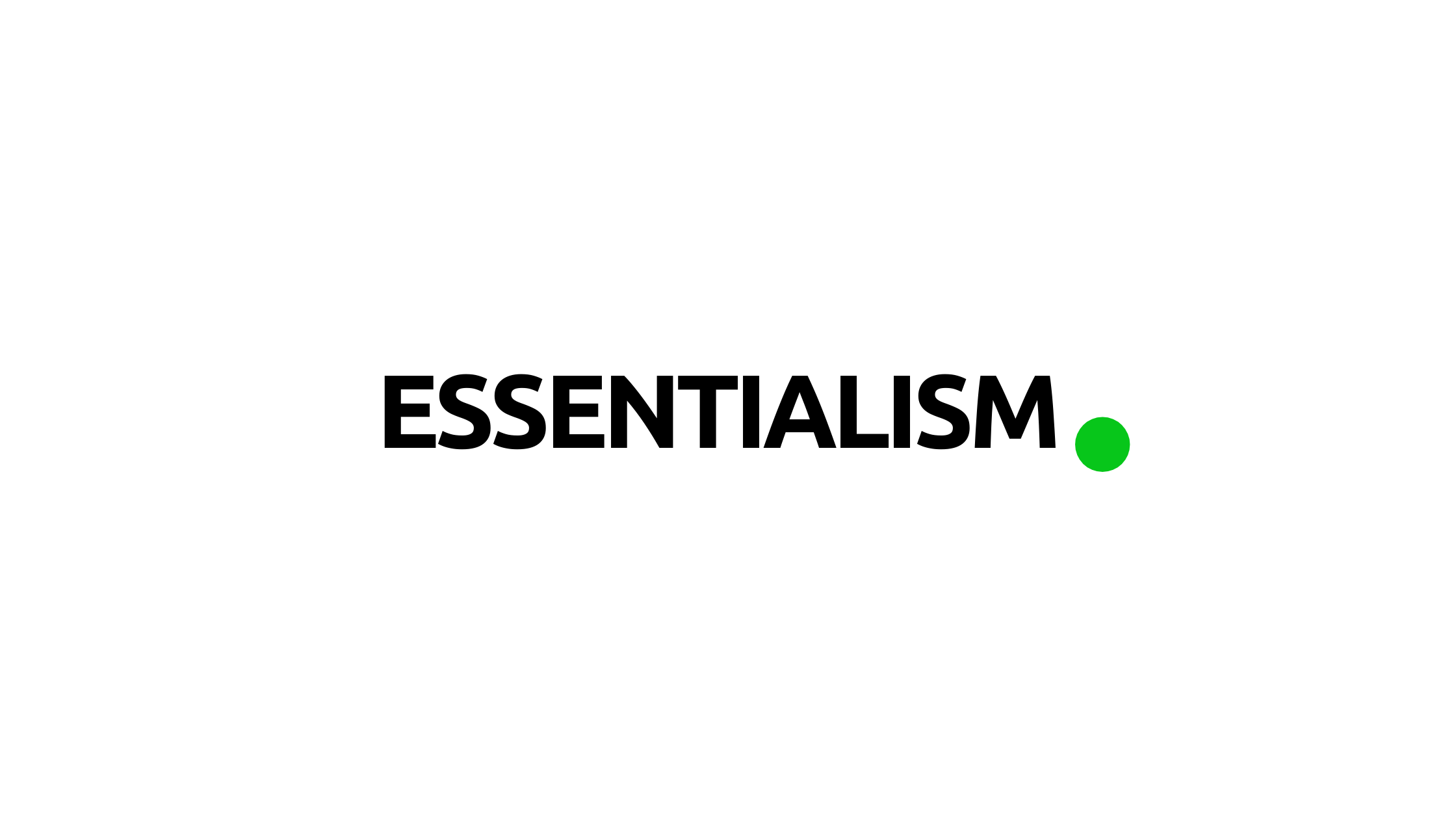Essentialism: Accomplish More with Less
Essentialism is an intentional way of living popularized by Greg McKeown in the book Essentialism: The disciplined pursuit of less. In a world where we overcommit, say yes to everything due to FOMO (fear of missing out) and the sunk cost bias*, and strive to do more, essentialism brings in a fresh perspective to life and work; a perspective which has its foundation on slowing things down and focusing on the few things that matter the most in life.
I recently watched the Skillshare course "Simple Productivity: How to Accomplish More With Less" by Greg McKeown. In the class, essentialism is treated at length, with particular application of the concept to productivity and work. McKeown provides actionable steps and valuable lessons to introduce essentialism into our lives, defining what is essential, eliminating what is not essential, and carrying on with having an essentialist mindset for the long-run.
These are some notes from the online class.
“Essentialism is about doing more of the right things. ”
Defining what’s essential
The first step in the path to having a more "essential" mindset is the definition of what is essential for you in your life right now. As McKeown suggests in the course, the first question to ask is: what is something essential that you're under-investing in right now? Some prompts are: 🅰why does it matter to you? 🅱what needs to change? ©how much time will it take?
Reviewing everything that has happened in the week and looking ahead to the following week and deciding where to place the focus are building blocks and part of the process of living a more essential and intentional life.
Eliminating the non-essential
The second step consists of becoming conscious of what is non-essential in your life right now.
“Make a list of all the things you are over-investing in right now. ”
Practice saying 'No' more deliberately
Change mental frame: from "I have to..." to "I choose to, because if I don't..."
Don't agree to anything too quickly. Take time to consider agreements.
“We’ve got to learn the art of the slow yes and the fast no”
Learn to uncommit. Do it honestly
The sunk cost bias makes it hard for people to uncommit.
Endowment effect: we overvalue something simply because we own it.
Uncommitting is a way of validating the principle of being honest with people.
To uncommit is the honest path of eliminating a previous commitment.
*The sunk cost bias is the tendency we have to becoming more committed to something once we invest in it.
“Make a list of the times you said ‘Yes’ and how it felt (include both negative and positive feelings). ”
Making it as effortless as possible to do what matters most - Execution
When starting a new routine, make a small commitment to start and let it build up over time.
Consistency is more important than quantity.
Make it easy to do what is essential, and hard to do what is non-essential.
Maintain a routinized weekly checklist to avoid wasting time scheduling your essential tasks.
Create Accountability: ask someone you trust to hold you accountable to your most important tasks.
Build environmental-based triggers into your schedule; they keep you from having to think about a task. You simply do it because it's set up for you.
Routinizing takes away the cognitive effort of deciding what to do and when. By routinizing your regular tasks you save your creative energy for more important projects.

